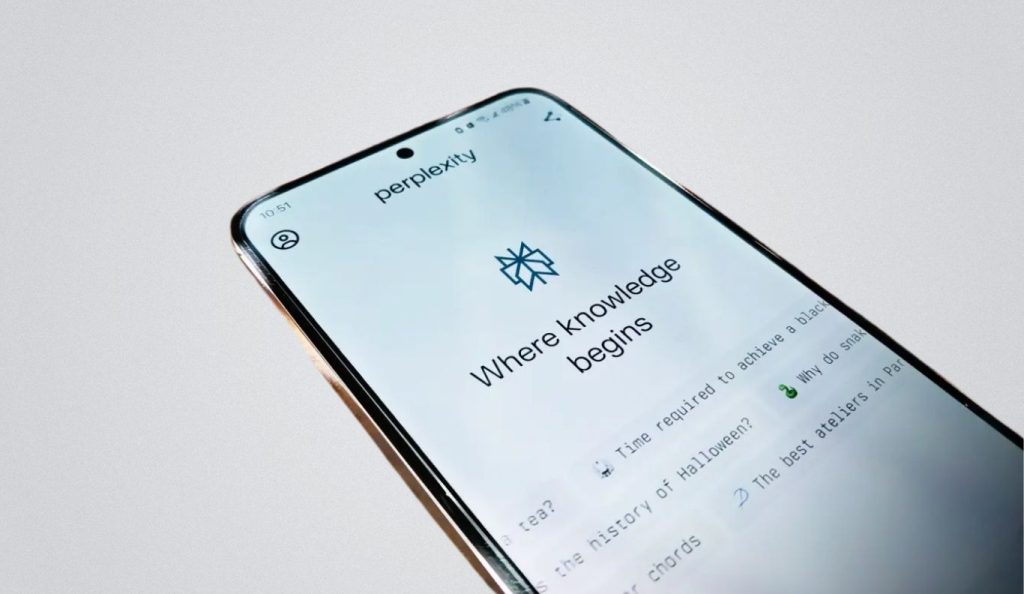In an ambitious move to challenge the dominance of Chrome, Perplexity AI is looking to take its Comet browser to the next level by embedding it directly into smartphones.
Perplexity AI is actively negotiating with smartphone manufacturers to preinstall its Comet browser, as revealed by CEO and Co-Founder Aravind Srinivas in a recent interview with Reuters. If successful, this move could significantly expand the company’s user base by tapping into what Srinivas refers to as browser “stickiness”, the tendency of users to continue using default apps preloaded on their devices.
“It’s not easy to convince mobile OEMs to change the default browser to Comet from Chrome,” Srinivas admitted, acknowledging the challenge of breaking into a space largely controlled by tech giants.
According to Statcounter data cited in the Reuters report, Google Chrome currently commands a 70% share of the mobile browser market. Apple and Samsung browsers together account for another 24%, leaving little room for newcomers.
Still, Perplexity seems undeterred. Talks reportedly began as early as April, with Samsung and Motorola both being approached to integrate Comet into their smartphone ecosystems.
What Makes Comet Different?
Currently in beta and only available for desktop, Comet isn’t just another browser. It embeds Perplexity’s proprietary AI to enhance browsing with real-time answers and task execution. Users can interact with their own personal data, including email and browser history, and even perform complex functions like scheduling meetings.
With these capabilities, Comet falls in line with the industry’s trend toward agentic AI systems designed to act independently and handle tasks with minimal user input.
While the desktop version is still in testing with a few hundred thousand users, Srinivas is already thinking bigger. The company has its sights set on reaching “tens to hundreds of millions” by 2026, banking on mobile partnerships and an evolving user experience to fuel growth.
A Shift in How People Find Information
The rise of tools like Comet also signals a disruption in traditional digital marketing strategies. As reported by PYMNTS, AI-driven search experiences from Perplexity and Google are upending the traditional SEO model, especially for small and medium-sized businesses (SMBs).
“The traditional SEO game is breaking down,” said Joy Youell, owner of Winsome Marketing. “SMBs can’t just rely on ranking for search terms anymore. They’ll need to focus on visibility inside generative AI platforms — whether that’s structured data, verified listings, or integrations through plugins, APIs, or partnerships.”
Perplexity isn’t alone in the race to reinvent web browsing. Industry leader OpenAI is reportedly developing its own agentic AI browser, designed to automate complex tasks like booking travel or managing finances, pointing to a future where intelligent browsers become digital assistants in their own right.
As AI continues to reshape how people search, interact, and perform tasks online, Perplexity’s bold attempt to land Comet in users’ pockets could either spark a browser revolution or face stiff resistance from a market deeply rooted in default habits.

